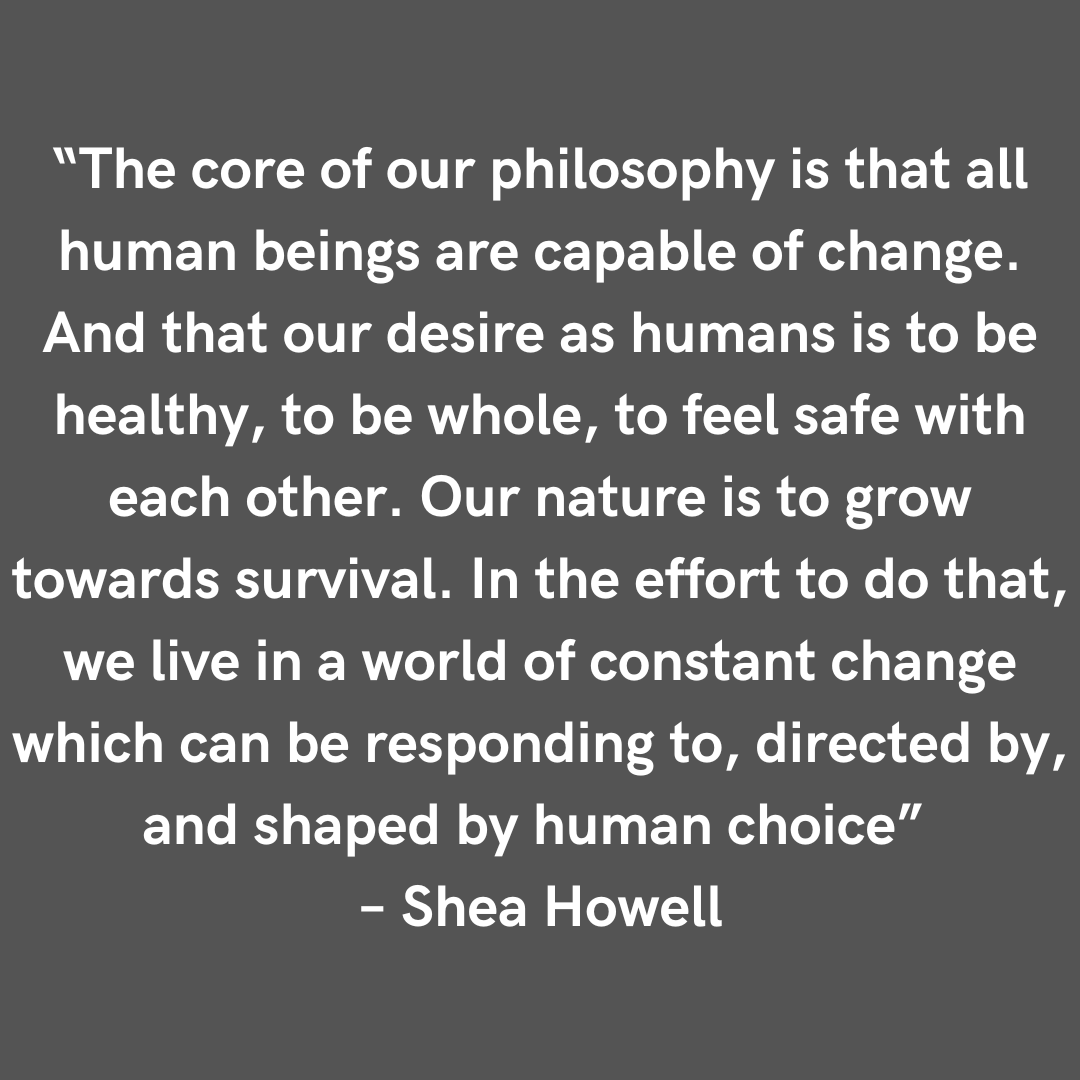“The core of our philosophy is that all human beings are capable of change. And that our desire as humans is to be healthy, to be whole, to feel safe with each other. Our nature is to grow towards survival. In the effort to do that, we live in a world of constant change which can be responding to, directed by, and shaped by human choice” – Shea Howell
When the James and Grace Lee Boggs Center to Nurture Community Leadership hosted two study circles last year, our intention was to engage a range of leaders, readers and thinkers from across Detroit and beyond because of our fundamental theory of change. Our work as a Center is an active commitment to cultivate our communities’ capacity to engage media critically, make connections between the past, present and future, and practice dialectical thinking to develop grounded political assessments. In both rounds of 6 sessions, we hosted intimate, virtual gatherings with folks who understood the potential of the moment and wanted to work together with deeper intention.
After a year of global uprisings and a rapid movement-building period, we knew our communities could benefit from another way of assessing the current political moment. With one of the Boggs Center’s key roles as a hub for exploring theory and practice, that first study circle we hosted was our way of practicing that role explicitly. Reading Robin D. G Kelley’s Freedom Dreams offered us an opportunity to explore the foundation of historical movements and the radical imaginations that dreamt them up. We wanted a chance to uncover new questions and contradictions, struggles and successes, in order to support our network of radical dreamers’ ability to think together about what we’re called to do now.
The second study circle read and discussed Border & Rule by Harsha Walia. Continuing our effort to connect with movement organizers and theorists, we wanted to deepen our understanding of how to build alternatives to policing, imprisonment, and borders in ways that help foster global consciousness and solidarity. We were particularly interested
in engaging with those who already recognize that this moment has great potential and requires us to work and study together with greater depth and intention.
These study circles were an extension of our theory of change — rooted in our fundamental beliefs that we need to transform ourselves to transform the world and the importance of critical connections and beloved community that can lead to revolutionary change. We know that the reason to study collectively is because it offers us a way to tease out the fundamental contradictions that we face, chart a clear path of what has been learned in past revolutions and moments of radical movement, and to get clear about the tactics, strategies and philosophies that influence our current momentum. We can make different choices that bring about more justice, freedom and radical love, and in order to do so, we have to understand why the historical choices were made, what we benefited from those choices and how they fell short. Each reading was an opportunity to make connections between what we know and experience in our communities and through our organizing and what the author offers as historical context and political reasoning.
These intergenerational learning groups were powerful places of connection and contemplation, and we continue to reflect on what we learned there, the people we met and the relationships that have been fostered. Each study circle made an offering to those outside of our circle as we closed. The Freedom Dreams study circle wrote a collective poem that spoke to the impact of the book and what we learned as a part of our circle. It can be viewed in this video: bit.ly/scborderpoem. The Border & Rule study circle created a thorough study guide, found here:bit.ly/borderrulestudy for future readers of the text that encompassed the questions circle members generated as they read, as well as notes and resources for each chapter.
How we will continue to develop this collective practice of study has yet to be determined, but we know that as a Center, we will continue to engage our communities and networks in study and praxis, exploring our history and charting a path for the future.
Bio: PG Watkins (they/them) is a nonbinary organizer, facilitator and organizational strategist from Detroit. PG believes that organizing and storytelling are interconnected and is committed to using both mediums to shift dominant oppressive narratives and change the material conditions of Black people in Detroit and beyond.


